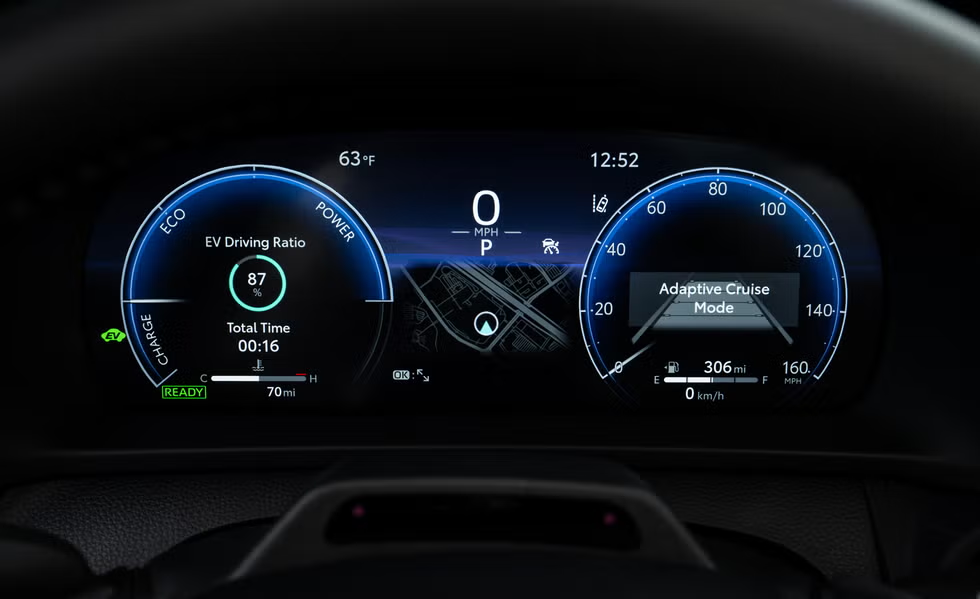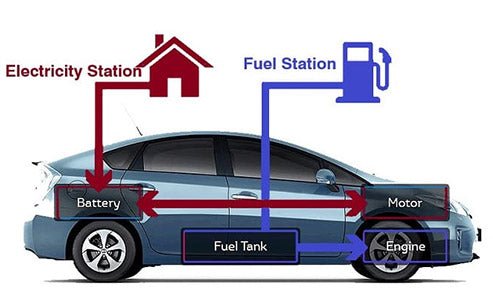With growing concerns about fuel prices and environmental sustainability, hybrid vehicles have become increasingly popular. Their appeal lies in their impressive fuel economy, offering a potential solution for eco-conscious drivers. But do hybrids genuinely provide environmental benefits, or are they just a more efficient way to use fossil fuels?
Let’s delve into the environmental impact of hybrid cars and uncover whether their advantages truly outweigh their drawbacks.
Fuel Efficiency and Environmental Impact of Hybrid Vehicles
One of the most significant benefits of hybrid vehicles is their ability to use less fuel compared to traditional gasoline-powered cars. By combining an internal combustion engine with an electric motor, hybrids reduce the amount of gasoline consumed, which can lower greenhouse gas emissions.

However, it’s important to remember that hybrids still rely on fossil fuels and produce emissions during operation, even if they are lower than those from standard vehicles.
Environmental Costs in the Supply Chain
The production of hybrid vehicles involves complex supply chains that contribute to their environmental footprint. Hybrid batteries often contain materials such as nickel, cobalt, lithium, and rare-earth metals.
Mining and processing these materials require significant energy and can lead to environmental degradation. For example, extracting neodymium for electric motors involves energy-intensive processes and environmental risks.
Automakers are actively working to mitigate these impacts by developing sustainable battery technologies and finding alternatives to rare-earth materials. These efforts aim to reduce the overall environmental cost of hybrid production and improve the sustainability of future vehicles.
Maintenance and Longevity of Hybrid Vehicles

Hybrids generally offer some advantages in terms of maintenance. They often have smaller engines, which means less oil is used, and their brake systems benefit from regenerative braking, which reduces brake pad wear. These factors contribute to a slightly lower environmental impact during the vehicle’s lifespan.
However, replacing a hybrid’s battery can be costly and environmentally challenging. Battery disposal and recycling are critical to minimizing the impact of hybrid vehicles. Proper recycling practices can help reclaim valuable materials and reduce the need for new resources, contributing to a more sustainable lifecycle for these vehicles.
Recycling and End-of-Life Considerations
When a hybrid vehicle reaches the end of its life, responsible recycling is essential. Components like the battery and electric motor should be properly processed to recover valuable materials and reduce waste. This not only lessens the environmental impact but also supports a circular economy where resources are reused rather than disposed of.

Environmental Break-Even Point
The environmental benefits of hybrids compared to gasoline-only vehicles depend on various factors, including the specific model and how long the vehicle is used. Generally, hybrids achieve an environmental break-even point relatively early in their lifespan. The longer a hybrid remains in service, the lower its overall environmental impact, making its efficient use of fuel more advantageous over time.
In conclusion, while hybrids offer clear benefits in terms of fuel efficiency and reduced emissions, their environmental impact is a complex issue involving production, maintenance, and disposal. By understanding these factors, consumers can make more informed decisions about whether a hybrid vehicle aligns with their environmental values and needs.